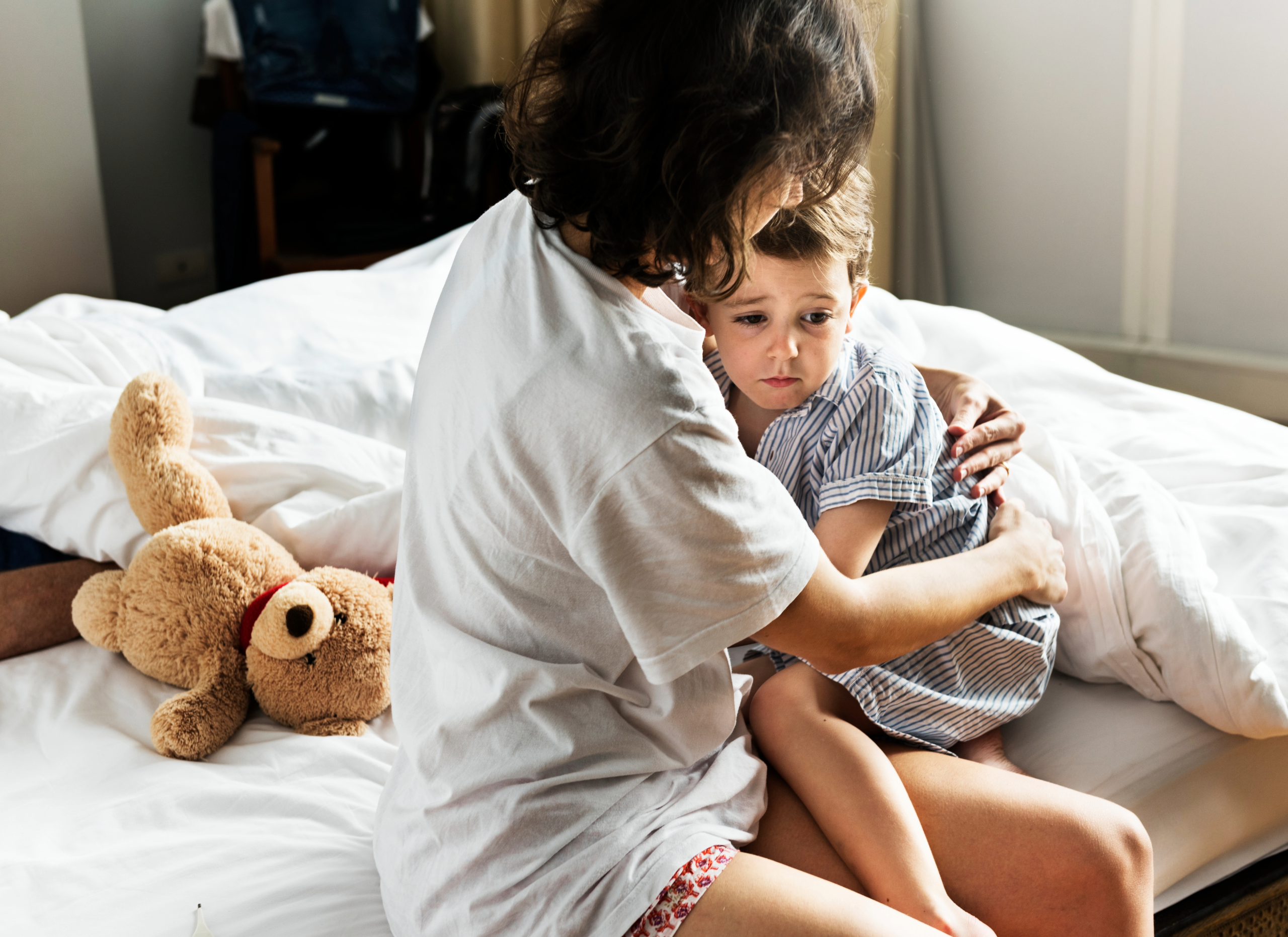4 Parental Hacks to Help Your Child Sleep After a Nightmare
Bad dreams might not be real, but they certainly impact your kids’ sleep and sense of safety. The effects also extend to you — if they’re not sleeping from sheer terror, you’re not, either. However, when they know you’re completely in their corner, you can tackle those fears as a team, and in time, everyone can enjoy more restful nights. Explore these practical hacks to help you navigate the journey together.

1. Lead With Comfort and Empathy
The most important thing for kids screaming from a nightmare is to feel safe and loved. So, when yours expresses fears about night terrors, respond with warm hugs and gentle reassurance. Resist the urge to brush off their worries by telling them “monsters aren’t real.” It’s more helpful to acknowledge their concerns and let them know you’re there to support them.
When they’re calm, you can add, “We’ll find a way to tackle these scary dreams together. Let’s think of some solutions tomorrow when we feel more rested.” This way, you gently guide the conversation toward them returning to sleep.

2. Make Their Sleep Space Feel Safe
Going back to sleep after a frightening dream would be much easier for your little one if their bedroom felt secure and comforting. A nightlight can help if they’re scared of the dark. Having something familiar can also make a difference — let them pick out cozy blankets or a favorite stuffed animal to cuddle.
Is the room too hot or too cold? Depending on where you live, you want to set the temperature between 60 degrees to 67 degrees Fahrenheit to create a more comfy environment and promote relaxation.

3. Talk It Out
Talking about the nightmare when your child is feeling calmer is essential. Ask them to share what scared them, as it can help them process their emotions and reduce anxiety.
You can even help them create a “dream monster” story where they’re the hero, turning a frightening experience into an empowering narrative. If you’re up for it, you could sing a song to lull them back to sleep. Take a page from Sheldon Cooper’s mom in “The Big Bang Theory” with her signature “Soft Kitty” lullaby.

4. Practice Simple Coping Skills
One of the best things a parent can do is help their toddlers learn how to handle their fears independently. Practice deep breathing together, taking slow, deep breaths in through the nose and out through the mouth to help them calm down when they feel scared. You can also encourage them to visualize their safe and happy place whenever they feel anxious.
Keep practicing these coping skills through play and repetition to support them while they figure out their feelings. As they keep at it, these techniques will help them become stronger and more confident in handling fear when tough times arise.

Why Is My Kid Having Nightmares?
While the exact cause of bad dreams in younglings remains unknown, rest assured they’re completely normal. The Sleep Foundation reports around 50% of kids aged 3 to 6 and 20% aged 6 to 12 often have nightmares.
Cognitive and emotional development are some key contributors to this phenomenon. Children might experience bad dreams as they learn about the world around them and separate reality from imagination. Perhaps they saw something scary on TV and couldn’t get the image out of their minds.
Major life changes like moving, starting school, or welcoming a new sibling can amp up stress levels, which sometimes show up during sleep. Little ones’ dreams often mirror the concerns they face in reality, so it’s no surprise significant life events can be a big trigger.
Irrational fears can also manifest as nightmares. For instance, a recent survey found 38% of people avoid going to the dentist because they’re scared. In kids, this dread could translate into frightful dreams, reflecting their struggles to avoid or cope with the unknown.
Lastly, the tendency to experience nightmares can be affected by family history. Studies indicate genetics play a role, meaning if you had nightmares during childhood, your child might be more prone to having them, too.

When to Call the Doctor
Occasional nightmares are typically common, but there are times to seek medical advice. Call your doctor if your kid is displaying these indicators:
- Frequent and intense episodes: If nightmares occur several times a week and disrupt their sleep consistently
- Daytime anxiety: If they exhibit fearfulness during the day related to their nightmares, affecting their mood or behavior
- Physical symptoms: If they show signs of distress such as night sweats, breathing issues, or other concerning symptoms during sleep
- Behavioral changes: If there are noticeable changes in your child’s behavior, mood, or overall functioning that coincide with the nightmares
- Safety concerns: If they’re acting out their nightmares and pose a risk of injury to themselves or others

Help Your Child Overcome Nightmares
It’s distressing to see your little ones waking up terrified after a bad dream but hang in there. With some patience and these strategies, you can help them feel more secure and get back to peaceful sleep. You’ve got this!






